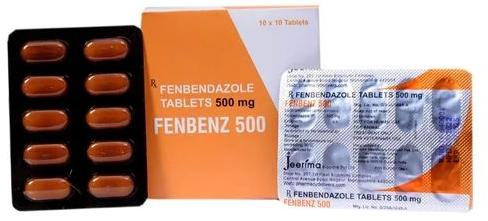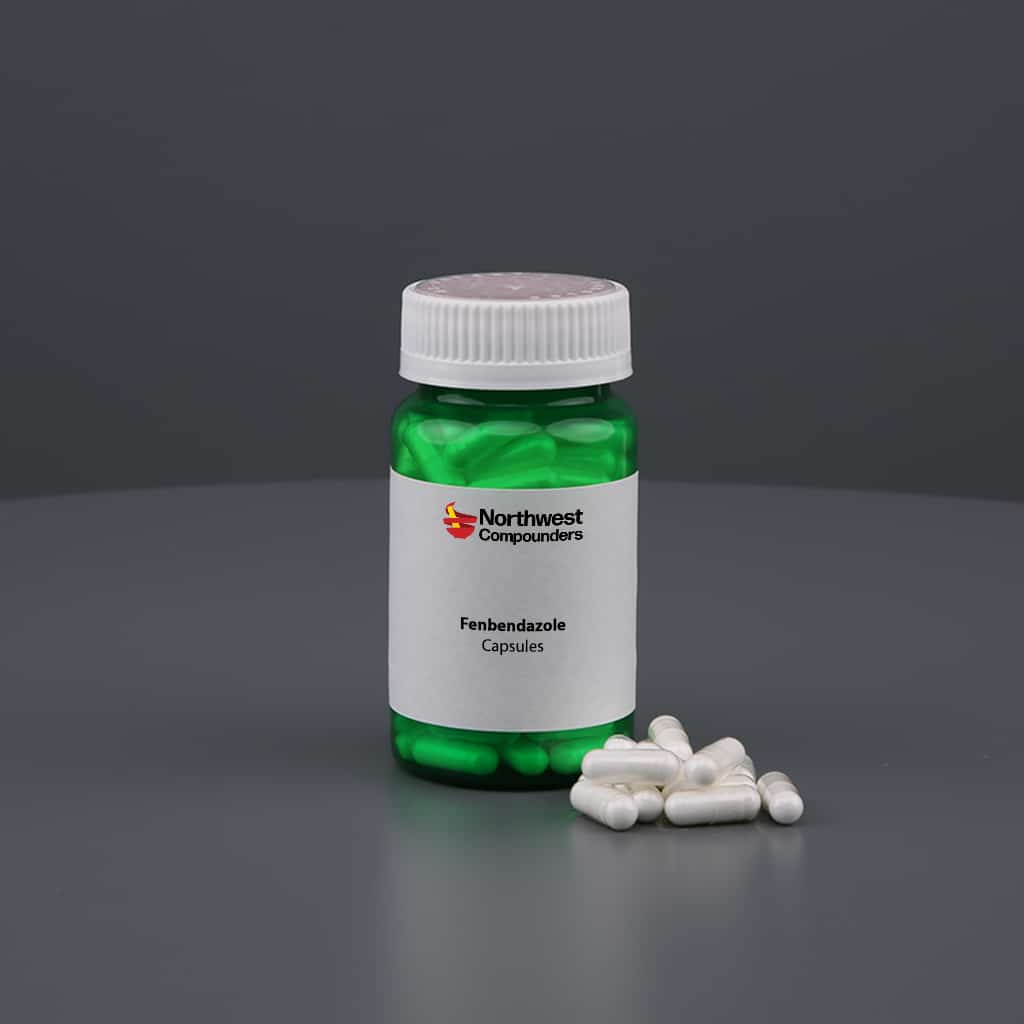222 mg fenbendazole: Reasons Vets Recommend It in Veterinary Medicine
Checking out the Mechanisms Behind Fenbendazole and Its Effect On Animal Health And Wellness
Fenbendazole is an extensively utilized anthelmintic recognized for its effectiveness versus various parasites. Its primary system includes the restraint of microtubule development, which interrupts essential processes in these pathogens. Beyond its antiparasitic homes, fenbendazole likewise shows up to improve immune reactions and has anti-inflammatory benefits. Understanding these multifaceted effects might disclose new applications for animal wellness. Nonetheless, inquiries continue to be concerning its complete capacity and security profile.
The Pharmacokinetics of Fenbendazole
The pharmacokinetics of fenbendazole, a widely utilized anthelmintic in veterinary medication, entails the research of its absorption, circulation, metabolism, and discharging within animal systems. After administration, fenbendazole is rapidly absorbed from the stomach tract, with peak plasma concentrations occurring within hours. Its distribution is affected by variables such as cells binding and lipid solubility, permitting it to pass through numerous tissues efficiently. The drug undergoes comprehensive metabolism largely in the liver, where it is transformed into active and non-active metabolites. These metabolites play a function in the medication's general effectiveness and security profile. Excretion occurs primarily with feces, with a smaller proportion eliminated using pee. The half-life of fenbendazole differs among types, which affects dosing routines. Understanding these pharmacokinetic properties is essential for optimizing its healing use and ensuring reliable parasite control in vet methods.
Mechanisms of Action Versus Bloodsuckers
Fenbendazole exerts its antiparasitic results largely via the inhibition of microtubule development in parasites. This interruption impacts their structural stability and mobile functions, causing damaged basal metabolism. Therefore, the medicine effectively jeopardizes the survival and recreation of various parasitical organisms.
Inhibition of Microtubule Development
Restraint of microtubule development represents a crucial system whereby particular anthelmintic agents, including fenbendazole, exert their results on parasites. Fenbendazole binds to tubulin, a healthy protein that develops microtubules, disrupting the polymerization procedure required for microtubule setting up. This disruption hinders crucial mobile functions, including mitosis, intracellular transportation, and structural honesty. As microtubules play an essential duty in maintaining the shape and feature of parasitical cells, their inhibition brings about cell cycle arrest and eventual fatality of the parasite. This system is specifically reliable versus nematodes, as their reliance on microtubules for wheelchair and nutrient absorption makes them at risk to fenbendazole. The inhibition of microtubule formation is an essential facet of fenbendazole's therapeutic efficacy in veterinary medication.
Disturbance of Energy Metabolic Process
Interfering with basal metabolism is another vital system whereby fenbendazole targets parasitic organisms. This anthelmintic changes the energy manufacturing pathways within parasites, mainly impacting their capability to create adenosine triphosphate (ATP) By preventing glucose uptake and interfering with mitochondrial feature, fenbendazole limitations the power sources vital for the survival and recreation of these microorganisms. Because of this, bloodsuckers come to be significantly at risk to ecological anxieties and immune feedbacks. In addition, the disturbance in energy metabolic process not only affects the bloodsuckers directly yet also reduces their ability to assimilate nutrients, further impairing their growth. Generally, the interruption of energy metabolic rate stands for a fundamental element of fenbendazole's efficiency against numerous parasitic infections, adding greatly to enhanced pet health and wellness end results
Potential Negative Effects and Security Profile
The possible side effects and security account of fenbendazole warrant careful consideration, specifically in veterinary applications. While normally considered as safe, some animals might experience adverse reactions, consisting of gastrointestinal disruptions such as throwing up and diarrhea. In addition, neurological signs, although unusual, have actually been reported in delicate people, highlighting the demand for surveillance during therapy.

Fenbendazole's security in numerous species, including pets and pet cats, has been recorded, yet dosage and duration of therapy have to be thoroughly handled to lessen threats. Expectant or breast feeding pets might additionally require special focus, as the results on creating unborn children or nursing offspring are not fully understood.
Regular veterinary examinations can help alleviate possible side effects and ensure the medication is provided suitably. While fenbendazole is a reliable anthelmintic representative, watchfulness regarding its side results is necessary for preserving animal wellness.
Fenbendazole's Impact on Immune Function
Fenbendazole has actually been kept in mind for its potential to regulate body immune system reactions in pets. Its anti-inflammatory residential properties might add to boosted immune function, providing a twin benefit in taking care of health and wellness (fenbendazole). Understanding these results is essential for reviewing fenbendazole's function in vet medicine
Immune System Inflection

Anti-inflammatory Residences
Anti-inflammatory impacts represent a substantial element of fenbendazole's impact on immune function. Research study suggests that fenbendazole might decrease the manufacturing of pro-inflammatory cytokines, which are pivotal in moderating inflammatory responses. By regulating these cytokines, fenbendazole can possibly relieve inflammation-related problems in pets. This anti-inflammatory action not only aids in managing symptoms connected with numerous conditions yet also boosts total body immune system effectiveness. Furthermore, its capability to promote a well balanced immune feedback aids protect against too much inflammatory damage, which can result in persistent wellness problems. Fenbendazole's role in inflammation monitoring highlights its importance in veterinary medication, providing a dual advantage of antiparasitic activity and immune system support for pet health and wellness.
Applications Past Traditional Parasitic Infections
While mainly acknowledged for its effectiveness against various parasitical infections, fenbendazole has actually gathered focus for prospective applications beyond this typical extent. Current studies suggest that fenbendazole might have helpful effects on cellular health and immune response, making it a fascinating prospect for taking care of other wellness conditions in pets. For circumstances, its reported anti-inflammatory residential or commercial properties may provide relief for animals experiencing chronic inflammatory illness. Additionally, some research study shows that fenbendazole could contribute in supporting the general health of pets by enhancing nutrition this contact form absorption and intestinal wellness. Moreover, its potential as an adjunct treatment in cancer cells therapy has actually triggered passion, as preliminary findings suggest it might hinder lump cell development in certain contexts. These diverse applications highlight fenbendazole's convenience, urging more expedition right into its diverse benefits for animal health beyond its traditional use as a deworming representative.
Future Study Directions and Effects for Pet Wellness
The expedition of fenbendazole's potential applications has opened up new opportunities for study targeted at boosting pet wellness. Future studies could concentrate on its performance against a broader variety of microorganisms, including bacteria and infections, consequently broadening its role in vet medication. The effects Extra resources of fenbendazole's systems, such as its effect on immune inflection, warrant additionally investigation to understand just how it can reinforce overall wellness in different species.
In addition, research study may check out optimal does and solutions to make best use of efficiency while minimizing prospective adverse effects. Exploring fenbendazole's synergistic impacts with other drugs could bring about a lot more effective therapy methods. Longitudinal research studies evaluating lasting outcomes in pets treated with fenbendazole could supply valuable understandings into its safety and security and performance. In general, the ongoing exploration of fenbendazole uses appealing potential to boost animal wellness, necessitating a collective strategy among researchers, veterinarians, and pharmaceutical designers to promote developments in this field.
Regularly Asked Questions
Can Fenbendazole Be Utilized in Livestock for Parasite Avoidance?
The inquiry of whether fenbendazole can be made use of in livestock for bloodsucker prevention is pertinent, as manufacturers seek reliable therapies (222 mg). Research suggests it might give advantages, however proper standards and vet guidance are necessary for secure usage
What Is the Advised Dosage of Fenbendazole for Different Animals?

Exist Any Type Of Understood Drug Interactions With Fenbendazole?
Existing expertise shows that fenbendazole might engage with helpful resources specific drugs, possibly influencing their effectiveness or metabolism. Veterinary specialists suggest speaking with a vet to examine individual pet instances and identify any feasible communications prior to administration.
Just How Does Fenbendazole Contrast to Other Antiparasitic Drugs?
Fenbendazole is commonly compared to various other antiparasitic medicines based upon efficacy, range of activity, and safety accounts. It is favored for its performance against a vast array of parasites while normally displaying minimal adverse effects in animals.
Is Fenbendazole Effective Versus Viral or Bacterial Infections in Animals?
The effectiveness of fenbendazole versus viral or bacterial infections in pets remains unverified. Study largely focuses on its antiparasitic homes, with limited evidence sustaining any kind of function in dealing with non-parasitic infections in veterinary medication.